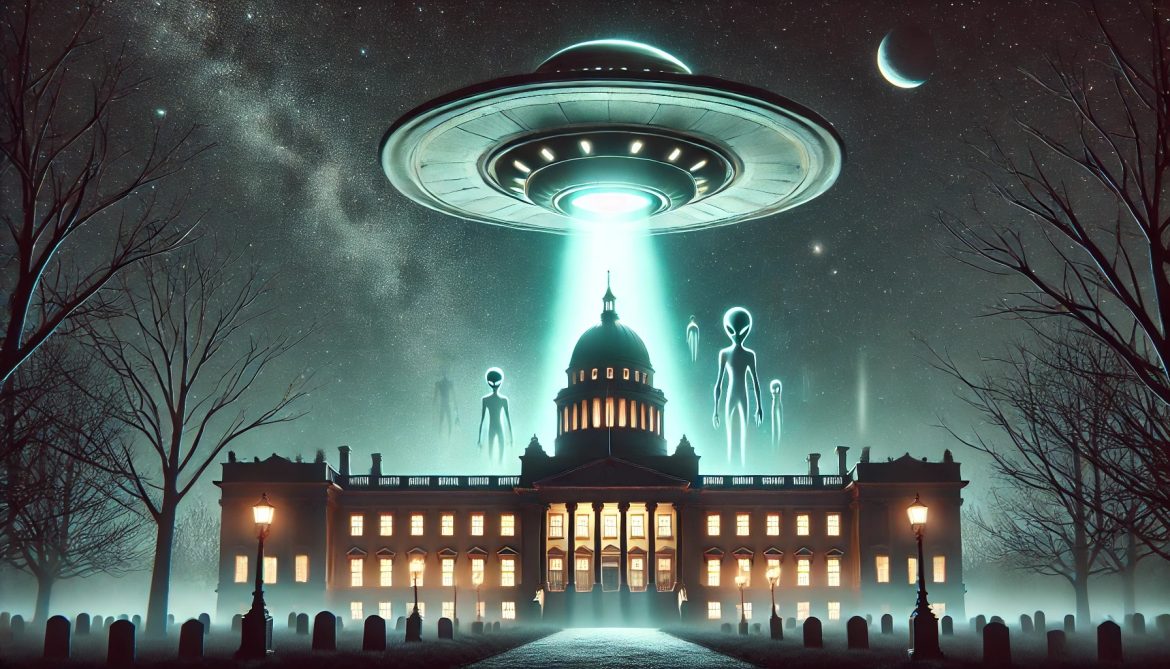The House Oversight Committee dives into the controversial topic of unidentified anomalous phenomena (UAPs) during a tense Wednesday hearing. Rep. Eric Burlison (R-MO) presses witnesses on claims that the Department of Defense (DoD) might be in possession of extraterrestrial biological remains. The hearing reignites public and scientific interest in the UAP mystery, including allegations of government cover-ups and demands for transparency.
Congressman Burlison’s Probing Questions
Rep. Burlison’s pointed questioning captures the spotlight as he asks witnesses whether multiple types of alien bodies are allegedly in U.S. government possession. “Is it multiple types of creatures, or are we looking at a singular entity here?” Burlison inquires, challenging witnesses to clarify the nature and scope of supposed extraterrestrial discoveries.
Witnesses, including whistleblowers and former intelligence officials, maintain that classified programs may indeed exist but stop short of confirming specifics due to security clearances. The exchanges highlight ongoing frustrations with the lack of definitive answers on UAPs despite heightened public and Congressional interest.
Nick Pope: UK’s Secret UFO Agenda
Adding to the intrigue, Nick Pope, a former UFO investigator for the UK Ministry of Defense, weighs in during an interview with NewsNation Prime. Pope admits that part of his role was to downplay public interest in UFOs, suggesting deliberate efforts to deflect scrutiny.
Reflecting on the recent Oversight Committee hearings, Pope describes Luis Elizondo’s definitive “yes” answers to questions about UAP sightings as a watershed moment. Elizondo, a former Pentagon official, has repeatedly alleged that the U.S. government possesses critical evidence about UAPs, fueling speculation about cover-ups.
The Galileo Project: Taking Research into Private Hands
While government investigations dominate headlines, Harvard astrophysicist Avi Loeb takes a different approach with “The Galileo Project.” Loeb tells NewsNation Prime that his team is committed to gathering direct evidence of extraterrestrial life through original research, bypassing reliance on government disclosures.
Loeb emphasizes the importance of empirical data in resolving questions about UAPs. “Our focus is on obtaining undeniable, reproducible evidence,” he says, highlighting plans for advanced telescopic arrays and specialized equipment to capture data on UAP sightings in the coming months.
Calls for Transparency and Accountability
The Oversight Committee hearing adds to mounting pressure on the U.S. government to disclose its knowledge of UAPs. Lawmakers and researchers alike demand accountability, citing a need for greater public access to information. Burlison and others stress that the secrecy surrounding UAPs undermines public trust and hinders scientific advancement.
Public opinion on UAPs remains divided, with skeptics questioning the validity of claims and believers citing mounting evidence of unexplained phenomena. The committee hearing, combined with statements from Pope and Loeb, underscores a growing consensus: the need for transparency and independent scientific investigation.
What’s Next?
As Congressional hearings continue, the spotlight remains on the DoD and other agencies alleged to harbor knowledge about UAPs. Meanwhile, civilian initiatives like the Galileo Project may offer alternative paths to uncover the truth about extraterrestrial life.
The next chapter in this saga will likely hinge on whether whistleblowers and advocates can produce irrefutable evidence to sway public and political opinion. Until then, the debate over alien life and UAPs promises to remain a hot-button issue in both government and scientific circles.



